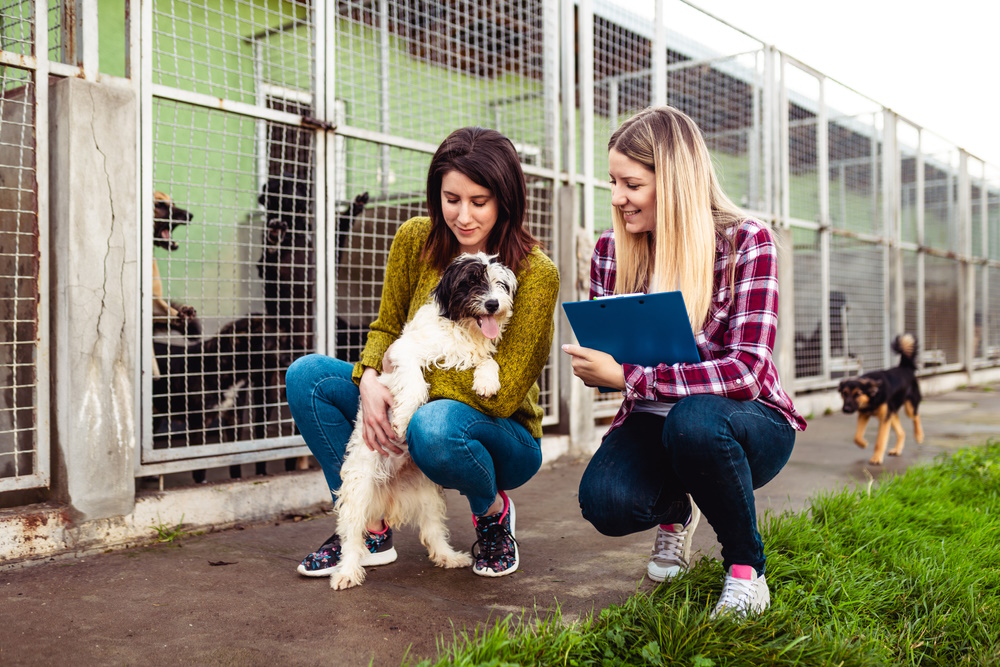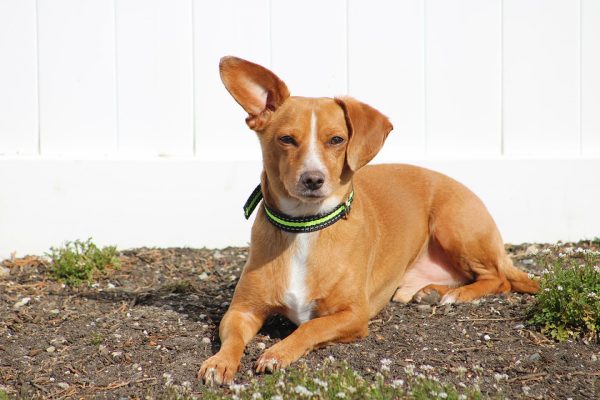When you’re looking to purchase a new pet, a shelter dog is one of the best choices that you can make. You’ll provide a home to an animal that desperately needs one and free up resources for others that might need help. However, choosing a shelter animal is not always straightforward. Here are several tips that will make the process easier and improve the chances that you will find the perfect companion.

The 10 Tips to Pick the Perfect Shelter Dog
1. Reflect on Your Lifestyle
Before you visit the shelter, it can be a good idea to reflect on your lifestyle and consider which type of dog you would like. Some dogs are extremely active and better suited to families that enjoy the outdoors so they can get the exercise that they need, while others may need constant attention and affection.
Also, consider the space and time that you have for a dog. Apartments may not be ideal for large breeds, and younger dogs may require a lot of time training. No matter your lifestyle, you can find a suitable dog if you think about it first.
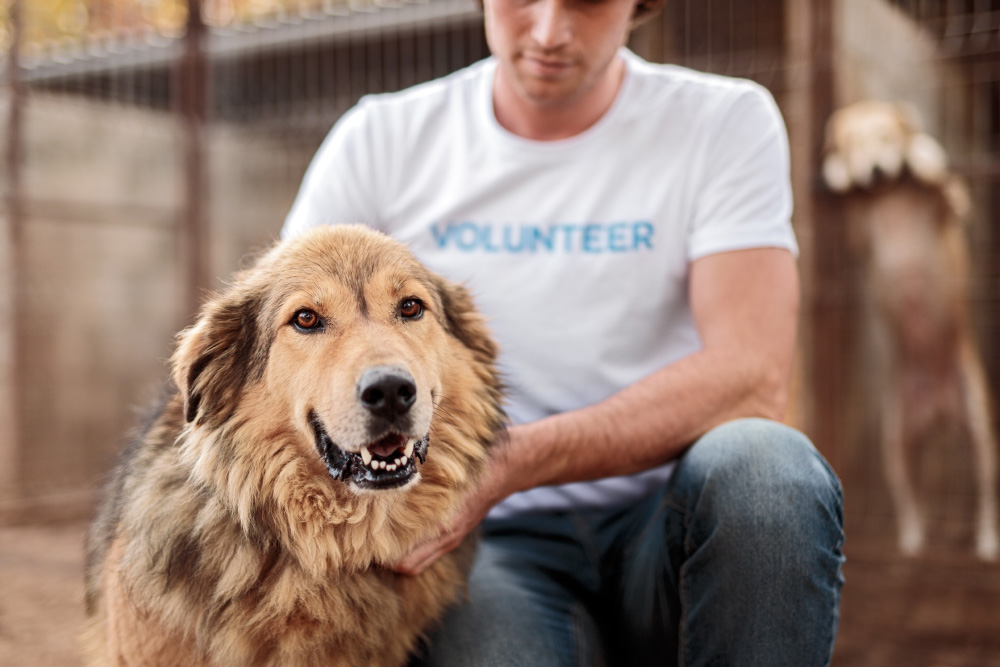
2. Visit Multiple Shelters
Take the time to visit multiple shelters in your area so you can get a good idea of what dogs are available and increase the chances that you will find the perfect pet.
3. Look Beyond the Breed
While knowing the breed can offer insight into a dog’s traits, individual personality matters most. Upbringing and background can have an even bigger effect on behavior, so it’s more important to focus on how you connect with a certain dog than what breed they are. Fortunately, most shelters will run personality tests to find out what traits a dog possesses to help them make a better match for a home.

4. Consider an Adult Dog
Adult dogs often have established temperaments and may even have some training, making it easier to determine how they will behave in your home. Dogs that have already received training may be easier to manage and may require less work since they have already had a head start.
Keep in mind that all training isn’t equal and some adult dogs may have learned some bad behaviors that will take time and effort to correct.
5. Spend Time Together
Once you start to develop a short list of possible dogs, spend time with each to help reveal any compatibility issues. You will likely begin to gravitate toward one or two of the dogs based on these interactions.
Hopefully, the shelter will allow you to take the dogs out for a walk or to the park to get a better idea of their personalities. Many shelters will also offer trial periods where you take a dog home for several days to make sure it’s a good fit before fully committing to them.
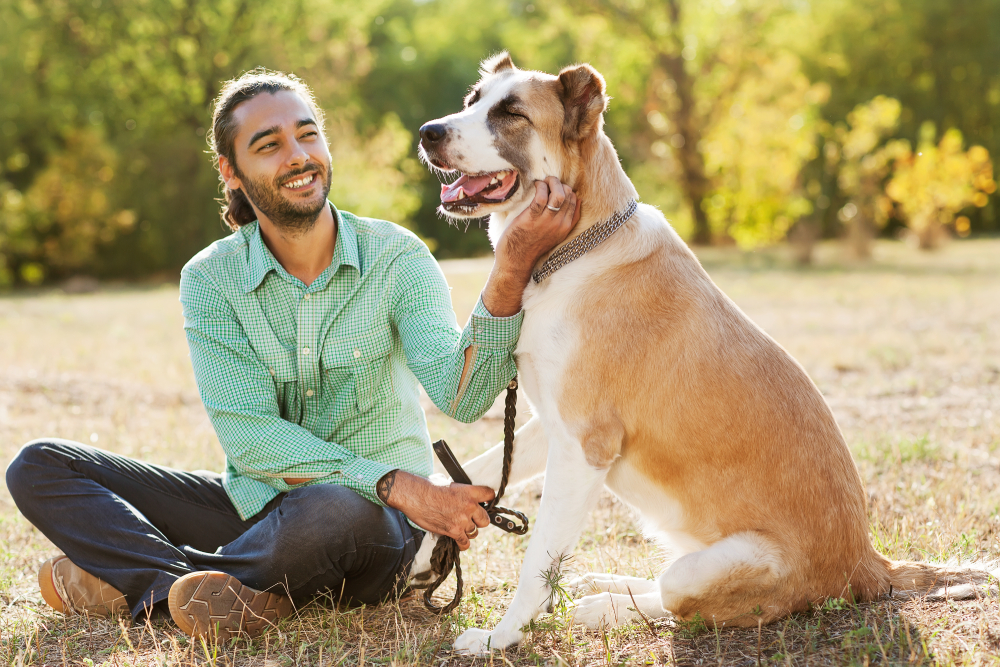
6. Assess Their Energy Levels
Besides the dog’s personality, assess their energy levels to ensure that you can keep up with them. Certain breeds, like Border Collies, Dalmatians, and Huskies, have especially high exercise needs that may be difficult for a single person to accommodate, especially if they are in poor health or spend a great deal of time at work, which could lead to bad behavior and even health problems for the pet. If you can only spend 30 minutes per day playing with your dog, ensure that you choose a breed that only needs that much exercise each day, and you will both be happier.
7. Look for a Connection
You will likely connect with the dog that is right for your home, similar to the way that you might feel a friendly connection when you meet a new person. Pay attention to your gut feeling, and choose a dog that you make instant friends with.

8. Consider the Dog’s History
A dog’s history can significantly impact their behavior and suitability for your home. If the dog had a poor upbringing, they may be more aggressive, especially in certain situations, and if they had a bad experience with something, like children, they may be better suited to a home without kids. Shelter workers will likely have at least a bit of information about a dog’s past that might help you get a better idea of whether they’re right for your home.
9. Be Patient
While it’s natural to want to bring your new pet home and get started enjoying your life together, it’s important to be patient and take your time choosing the right dog. A hasty decision could lead to a bad choice that doesn’t turn out well for anyone, especially if you have to return the dog to the shelter.

10. Prepare for a Commitment
Although many dogs at a shelter may already be adults, most breeds live for more than 10 years, which means you need to make a long-term commitment to their health, safety, and happiness. Ensure that you’re ready for the responsibility of caring for another living being and are willing to make any sacrifices required.
High-quality dog food, regular vet visits, vaccinations, flea-and-tick treatment, treats, toys, and insurance are only a few of the continuous costs associated with owning a dog, and you also need to spend time with them to keep them happy and fit, protect them from dangers, and care for them through any emergencies and health issues that might arise.

Frequently Asked Questions (FAQ)
Why Should I Adopt From a Shelter Instead of Buying From a Breeder?
Adopting from a shelter gives a home to a dog in need, reduces demand for commercially bred puppies, and often saves you money on adoption fees versus breeder prices.
Are Shelter Dogs Healthy?
Shelters provide health checks before adoption and ensure that the dogs are vaccinated, spayed, or neutered. That said, it’s always a good idea to have a new pet examined by a veterinarian as soon as possible so you can get more detailed information about their health.
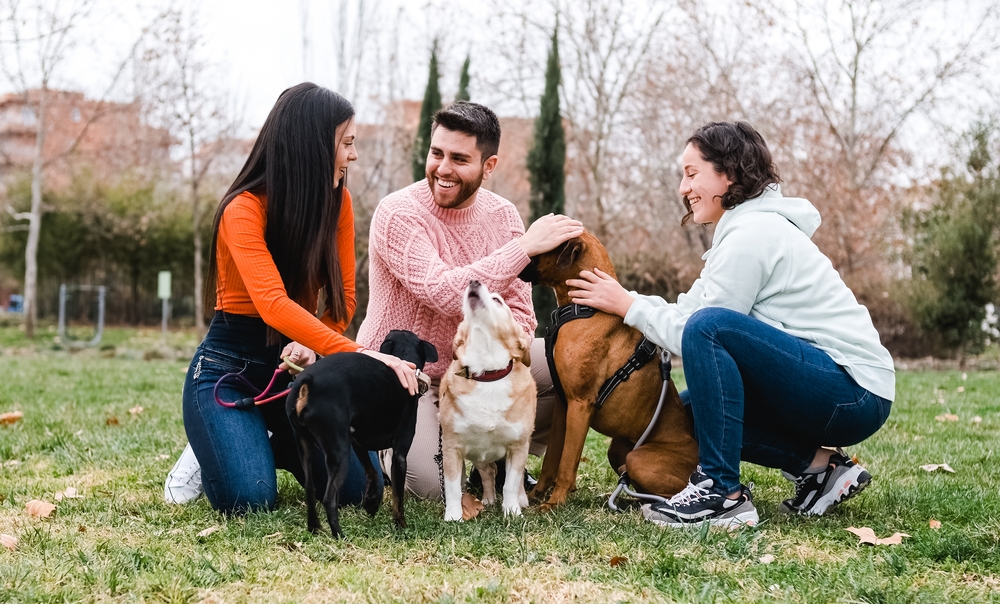
How Much Does It Cost to Adopt a Dog From a Shelter?
Adoption fees can vary widely depending on your location, the dog’s health, and several other factors. It’s best to visit your local animal shelter to discuss the price of adoption with them to get a better idea of what’s typical in your area.
What If the Dog I Adopt From a Shelter Doesn’t Adjust Well to My Home?
Unfortunately, although owners may try their best, some dogs may not feel comfortable in their new homes for one reason or another. It’s important to give any dog time to adjust to their new life, but you should reach out to the shelter for assistance if you encounter persistent problems. Many will offer training resources that can help, and a vet or an animal behaviorist might also have advice.
Did you know you can speak to a veterinarian without having to travel? Just head over to PangoVet. It's our online service where you can talk to a vet online and get the advice you need for your pet — all at an affordable price!


Summary
Adopting a dog from an animal shelter is one of the best choices that you can make, and by visiting different shelters to meet all the available animals, you will likely find one or two that you have an instant connection with. Try to spend time with them to see if the connection is solid. Learn about their history, and consider their exercise needs before you make a final choice, and we’re confident that you will be more than happy with your new pet.
See also:
- Blue-Green Algae & Dogs: Vet-Reviewed Toxicity Signs, Causes & Treatment
- Are Puppies a Lot of Work? Vet-Verified Facts & Helpful Tips
Featured Image Credit: hedgehog94, Shutterstock
